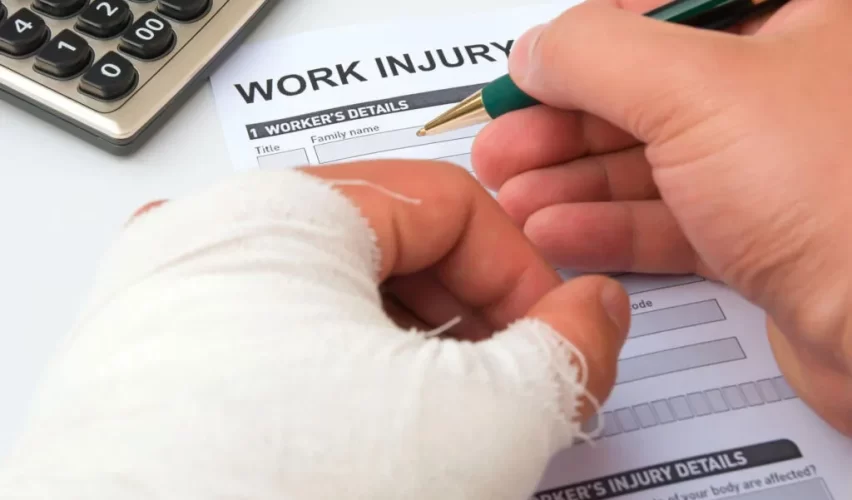Navigating Workplace Injury Claims Without Job Retaliation
Getting injured at work can be both physically and emotionally challenging. In addition to dealing with the pain and recovery, you may also face the stress of wondering how your injury will affect your job. Will your employer retaliate? Will you lose income or risk your job security while filing a claim?
Fortunately, in many cases, workers’ compensation laws are in place to protect employees who suffer injuries on the job. These laws allow you to file a claim for medical expenses, lost wages, and rehabilitation without losing your job. However, understanding your rights and the process of filing a workers’ compensation claim is crucial to ensuring that your employment is not jeopardized during this difficult time.
In this post, we’ll break down how to file a workplace injury claim, how to protect your job, and what steps you should take to ensure that your rights are upheld during the process.
1. Understanding Workers’ Compensation: What You’re Entitled To
Workers’ compensation is a state-mandated insurance program that provides financial assistance and medical care to employees who are injured on the job. It is designed to ensure that workers are taken care of, while also protecting employers from costly lawsuits. The key benefits of workers’ compensation include:
1.1 Medical Expenses
-
Coverage for Medical Bills: Workers’ compensation covers all necessary medical treatment related to your injury, including doctor visits, hospital stays, surgeries, physical therapy, and medications.
1.2 Wage Replacement
-
Partial Wage Compensation: If your injury prevents you from working, workers’ compensation will provide wage replacement benefits. Typically, you will receive a portion of your regular wages, though the exact percentage depends on your state’s laws.
1.3 Disability Benefits
-
Long-Term Injury: If your injury results in permanent disability, workers’ compensation provides benefits based on the severity of your injury, helping cover ongoing medical treatment and lost income.
1.4 Vocational Rehabilitation
-
Retraining: If your injury prevents you from returning to your previous job, workers’ compensation may cover vocational training or education to help you learn a new trade.
2. Protecting Your Job While Filing a Claim
One of the most common concerns for injured workers is whether filing a workers’ compensation claim will result in job loss or retaliation. Fortunately, federal and state laws protect employees from retaliation or discrimination for filing a claim. Here’s how you can protect your job during the process:
2.1 Know Your Legal Rights
-
Federal Protections: The Occupational Safety and Health Administration (OSHA) protects workers from retaliation when they file a workers’ compensation claim. Under federal law, your employer cannot fire, demote, or otherwise retaliate against you for seeking compensation.
-
State Protections: Many states have additional laws that prevent employers from discriminating against employees for filing workers’ compensation claims. These laws vary, so it’s important to be familiar with the rules in your state.
2.2 Communication Is Key
-
Notify Your Employer Promptly: As soon as you’re injured, report the incident to your employer. Timely reporting helps you avoid complications with your claim and ensures that your employer is aware of your situation.
-
Follow Company Protocol: Many companies have specific procedures for reporting injuries and filing workers’ compensation claims. Follow these procedures closely to avoid any issues.
-
Keep Your Employer Informed: Stay in communication with your employer during your recovery. Let them know how you’re doing and when you expect to return to work, which helps maintain a positive relationship.
2.3 Know Your Employer’s Responsibilities
Employers are legally required to:
-
Maintain workers’ compensation insurance to cover work-related injuries.
-
Provide you with the necessary information on how to file a claim.
-
Allow you to take time off to recover without fear of retaliation.
-
Accommodate any work restrictions, including modified duties, if possible.
3. Filing a Workers’ Compensation Claim: Step-by-Step
Filing a workers’ compensation claim involves several key steps. Knowing the process can help you avoid mistakes and ensure that your claim is filed correctly:
3.1 Step 1: Report the Injury to Your Employer
-
Immediate Reporting: As soon as you’re injured, notify your employer. This should be done in writing to ensure there’s a record of your report. Be as detailed as possible when describing how the injury occurred.
-
Timing: Most states require that you report the injury within a certain period (usually within 30 days). Failing to report your injury within this time frame could result in your claim being denied.
3.2 Step 2: Seek Medical Attention
-
Initial Treatment: Get medical treatment right away. Ensure that your doctor understands that the injury occurred at work, as this will help document the injury for workers’ compensation purposes.
-
Follow-Up Care: Continue any necessary treatment and keep records of all medical visits and treatments. Your medical history will play a crucial role in the workers’ compensation process.
3.3 Step 3: Fill Out a Workers’ Compensation Claim Form
-
Form Submission: After reporting your injury, your employer should provide you with a workers’ compensation claim form. This form typically includes your personal information, details of the accident, and the extent of your injuries.
-
Submit the Form: Once completed, submit the form to your employer’s insurance provider or the appropriate state agency, depending on your location.
3.4 Step 4: Follow the Claims Process
-
Claims Investigation: Once your claim is submitted, your employer’s insurance company will review it and may ask for additional documentation, including medical records, witness statements, and more.
-
Approval or Denial: Your claim will either be approved or denied. If approved, you will begin receiving benefits. If denied, you have the right to appeal the decision.
4. What to Do If Your Claim Is Denied
Unfortunately, workers’ compensation claims are sometimes denied, even if the injury is clearly work-related. If this happens, don’t panic — there are steps you can take to appeal the decision.
4.1 Review the Denial Letter
-
The insurance company should send you a formal denial letter, explaining why your claim was rejected. Carefully review this letter to understand the reason for the denial.
4.2 Appeal the Decision
-
File an Appeal: You have the right to appeal a denied claim. The appeals process varies by state, but generally involves submitting additional evidence to support your claim.
-
Seek Legal Assistance: If your claim is denied, consult with a workers’ compensation attorney. They can help you navigate the appeals process and gather the necessary evidence to strengthen your case.
5. What to Do If You Fear Job Retaliation
If you fear retaliation after filing a workers’ compensation claim, you are protected by law. Here’s what you should do if you believe your employer is retaliating against you:
5.1 Document Everything
-
Keep Records: Maintain a record of all communications with your employer, including emails, letters, and notes from meetings. If you suspect retaliation, document the specific actions or changes in your employment status.
5.2 Report Retaliation
-
Contact OSHA: If you believe your employer is retaliating against you, report it to the Occupational Safety and Health Administration (OSHA). OSHA will investigate and can take action on your behalf.
-
Consult an Attorney: If you’re experiencing retaliation or discrimination, a workers’ compensation attorney can help protect your rights and take legal action if necessary.
Conclusion: Filing a Workplace Injury Claim Without Risking Your Job
Filing a workers’ compensation claim after a workplace injury is your legal right. By understanding the process, knowing your rights, and taking the proper steps to protect your job, you can ensure that you receive the benefits you deserve without fear of retaliation or job loss.
If you’ve been injured at work and need help filing a claim, don’t hesitate to reach out for legal guidance. An experienced attorney can help you navigate the complex workers’ compensation process and ensure that your rights are protected every step of the way.





